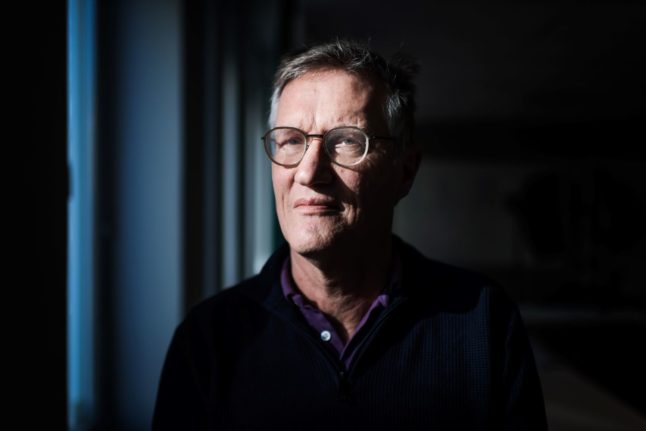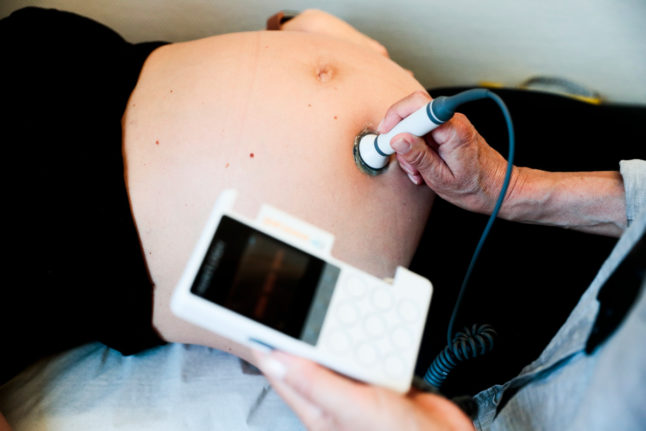“We were not any kind of libertarian paradise,” Tegnell told AFP during an in interview at his publisher’s office in Stockholm.
“We were just a society trying to find good ways to handle it in the most effective way for us,” he continued.
As countries around the world started extensive lockdowns in response to the spread of the novel coronavirus, Sweden stood out as it opted for more non-coercive measures.
Among some of its stricter measures it did ban visits to elderly care homes and limit the number of people attending public gatherings.
But it never imposed confinement, closed schools or required people to wear masks, basing its strategy on recommendations and individual responsibility.
The approach gave rise to a heated debate abroad, and was at times held up as a cautionary tale, or on the contrary, hailed by opponents of lockdowns.
“Obviously, many perceived Swedish volunteerism as a passive approach,” Tegnell writes in his book, calling it a “misunderstanding,” while conceding communication from his agency could have been better at times.
Nursing homes
Titled “Tankar efter en pandemi” (Thoughts after a pandemic), the book reflects the phlegmatic character of the public official, with each stage of the national strategy methodically dissected and explained.
“I also thought that people actually could handle this themselves,” he notes in his book and adds that he believes his faith was justified.
“We did not force anyone but saw a huge compliance with our recommendations,” Tegnell writes.
Having become the figurehead of Sweden’s strategy in spite of himself, Tegnell recounts his astonishment at the anger and even death threats directed against him.
But he insists that a majority of Swedes supported the country’s Public Health Agency: “It was the first time that our agency had received so many flowers!”
During the first wave of the pandemic, Sweden was one of the countries hit hard, especially as the disease ravaged retirement homes, claiming the lives of 2,780 people between March 1st and September 30th, 2020, according to official statistics.
In his book, Tegnell calls it a “catastrophic situation.”
“We really need to improve the quality of care in our elderly homes, the preparedness for these kinds of issues,” Tegnell told AFP.
In total, Sweden has recorded some 19,500 deaths associated with Covid-19 since the start of the pandemic.
Due to differences in accounting practices, international comparisons are difficult, but according to the “Our World in Data” website, Sweden is doing better than its European peers with 2,365 deaths per million inhabitants compared to 2,767 per million average for the European Union by late October.
At the start of the pandemic, the epidemiologist thought it would be easier to care for the elderly in Sweden than elsewhere in Europe, because they were all gathered together in one place, but in his book he admits he “was completely wrong,” as the homes lacked both the resources and skills needed.
Are we prepared?
Sweden also distinguished itself by never pushing for the widespread use of face masks, and they were only recommended on public transport during the second wave of the pandemic.
“Many countries in Asia have been using masks in public places for decades to limit the spread of the virus during the flu season. Had they been doing it wrong all these years?,” Tegnell ponders.
“It wasn’t my role to judge,” he continues.
“But in all the research, I couldn’t find any evidence that it made a difference for the better.” The scientist also urges authorities and organisations to take stock of the pandemic to learn for the future: “What happened and what did we do?”
The answers and conclusions drawn will be invaluable, as the epidemiologist considers a future pandemic to be inevitable, and likely “within the next few decades”.
“In many parts of the world the population is growing, which means that we start living in areas where we haven’t been before and in those areas there are very likely going to be new kinds of viruses that we haven’t seen before,” Tegnell said during the interview.
Whether we are prepared for the next one is “always difficult to know.”
“I think that we are slightly better prepared than we were for this one. But I think there is also lots more work to be done,” he concluded.
By AFP’s Nioucha Zakavati



 Please whitelist us to continue reading.
Please whitelist us to continue reading.
I had been in Norway 3 days when the Norwegian government decided to kick all foreigners out. I will stay polite as to the way we were treated…….but I will never forget
Thank God I had renting a cabin in Sweden for years and thank God I was able to catch what was to be the last train to Stockholm for the next 2 1/2 years
The Swedish crew was incredibly friendly and didn’t make a drama about the whole thing
I stayed 3 months in Sweden before going back to France where the ripples of the way the crisis was handled are still to be felt
Scores of children age 6 had to wear masks …..does one know what effect it has on learning, socialising ? Students being stuck in shabby lodging because this bis how it is in France
Swedes can feel blessed that someone like Anders Tegnell was at the helm. Not only did he save the country from going raving mad but he also saved the economy……even if Sweden is having a hard time right now……but her this…..we all are.
I will be forever greatful to Sweden for welcoming me during that time and to Anders Tegnell for having shown the world that a Lågom approach evidence based was the right approach
He should receive the Nobel prize. We were lucky to have him.